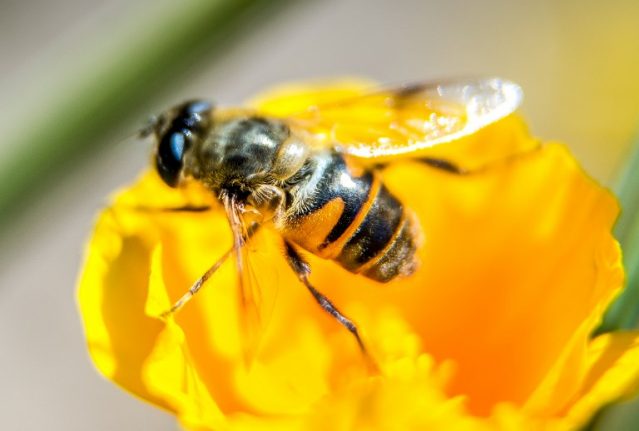 Photo: AFP
Photo: AFP
ENVIRONMENT
France stops sales of two US pesticides over threat to bees
A French court on Friday halted sales of two pesticides made by US chemicals giant Dow after an environmental group raised fears that the substances could be harmful to bees.
Published: 24 November 2017 16:22 CET

Photo: AFP
The two products, Transform and Closer, are authorised for sale in 41 countries including the United States, Canada and South Africa, according to Dow.
French health authorities gave the pesticides the green light in September, but this has been suspended following the decision Friday by a court in the southern city of Nice pending a further ruling on their legality.
Fears have been growing globally in recent years over the health of bees, which help pollinate 90 percent of major crops.
Large numbers are dying from “colony collapse disorder”, a mysterious scourge blamed on mites, pesticides, virus, fungus, or some combination of these factors.
READ ALSO:
The United Nations warned last year that 40 percent of invertebrate pollinators — particularly bees and butterflies — risk global extinction.
Both Dow and French health agency ANSES which approved the pesticides, have two weeks to appeal Friday's decision.
Designed for agricultural use, the sprays are intended to kill aphids and other bugs that attack plants.
But French environmental group Generations Futures charged that the active ingredient, sulfoxaflor, was a type of neonicotinoid — a pesticide that has been partially banned in the EU since 2013.
A study published in the journal Science in October found that 75 percent of the world's honey contained traces of neonicotinoids, which act as nerve agents on bees.
Dow insisted in court that its active ingredient was not a neonicotinoid, insisting the chemical was “more respectful to biodiversity”.
But judge Didier Sabroux said it was better to err on the side of caution “while uncertainties remain”, adding farmers might ignore instructions to use it only sparingly.
Url copied to clipboard!


 Please whitelist us to continue reading.
Please whitelist us to continue reading.